Who are we?
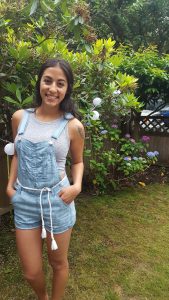
Amber Searwar
Major: FNH
Interests: lifting weights, nutrition, and hiking
This past summer I worked as an Assistant Coordinator for the UBC Summer Science Program and I helped out with food planning. I thought that this would be a great way to learn more about preparing large scale meals and meal planning.

Leonardo Nawingga
Major: FNH
Interests: cooking, music, and food processing
I have been preparing meals for friends and family during past private events. By doing this project I will be able to learn how to prepare meals for larger groups of people and improve my teamwork skills.
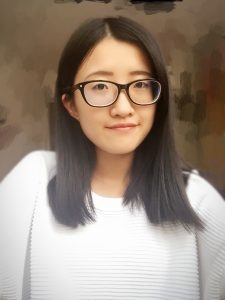
Gwendolyn Ge
Major: Food Science
Interests: advanced food technologies, traveling, reading and
music.
I enjoy cooking and engaging with different cultures, and had volunteered as a recipe development specialist. My past experience in meal planning and enthusiasm in nutrition and community engagement are what motivates me to choose this project!

Ula Zhu
Major: Food Science
Interests: food processing, nutrition, and travel
I would love to make connection with the community through food and contribute what I learned from food science to the local community. I have experience in menu planning with a limited budget, and this is good chance for me to prepare meals for a big group, as well as o improve interpersonal skills.
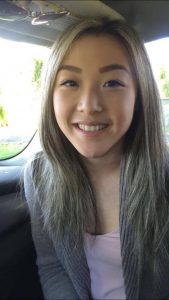
Sabrina Feng
Major: FNH
Interests: social sustainability and health
The opportunity to be a part of the community while improving my cooking skills was one I couldn’t turn down! Gordon Neighbourhood House is such an amazing organization that really seeks to improve the lives of the community members. This is an organization that I would like to really give my time and effort. Cooking for such a large number of people will give me some insight on the task and how to be more efficient in the future.
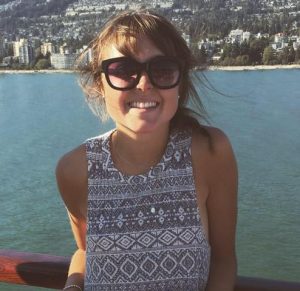
Natalie Kunz
Major: FNH
Interests: nutrition, travel, fitness, yoga, the outdoors
I have just started to enjoy cooking, especially with others. This project is a great opportunity to further my skills in cooking and meal planning for a large group of people, while being able to engage with a new community. As well as, I have a great interest in nutrition and love to communicate my knowledge to others.
“We wish to inspire the community to value nutrition and sustainability”.
—-Group 16
But how can we accomplish that? We are a group of six Land and Food Systems (LFS) students with a passion for nutrition, experiential learning, community-based learning, and practical meal planning. We wish to accomplish this goal through our LFS 350 class, which requires us to complete a community based project. We have all chosen to design a healthy and affordable meal for community members in the Gordon Neighbourhood House (GNH).
GNH was found in the last century by sisters of the Gordon family. In 1985, the current location at Broughton Street was opened (Gordon Neighbourhood House, 2016). It is a place-based community and the goal is to fulfill the needs and dreams of the community by supporting various programs (Gordon Neighbourhood House, 2016). Welcome to our blog! We are a group of six Land and Food Systems (LFS) students with common interests in nutrition, experiential learning, community-based learning, and meal planning. For our LFS 350 project, we are going to be working with the Gordon Neighbourhood House (GNH) Pay-What-You-Can lunch. GNH is a warm and welcoming community house located in the West End of Vancouver. It is part of the food security continuum providing relief for those who are food insecure and in return upgrades to the food system. Their operation is similar to other programs, such as food banks and soup kitchens. However, GNH does much more than feed those who are hungry; they also aim to improve people’s lives through education and networking opportunities for those who join. Not only do they provide meals they also provide a senior trip program, summer camps, a community lunch program, yoga, urban farming, and parties. We will be working directly with their Wednesday Pay-What-You-Can Lunch, which is a non-profit program aimed to provide a nutrient dense, diverse and inexpensive meal to the community and the volunteers. This program not only provides an inexpensive meal to nutritionally vulnerable individuals but also improves their food literacy and allows for them to enjoy a meal with others.
Why GNH: Pay-What-You-Can Lunch?
We have chosen this project for several reasons. As a group of students studying food science and nutrition, we all have a passion for food and cooking, as well as a mutual interest in healthy meal planning. Additionally, applying our knowledge of human nutrition in a community setting is a practical skill to have. Some of us have firsthand experience designing large scale meal planning and recipe building on a budget. We see this project as a great opportunity to develop our interpersonal skills within the community, and to learn how to assist undernourished individuals. Helping provide the community members access to affordable, safe, culturally appropriate, ecologically responsible and nutritionally adequate food at all time is what motivated us most to engage with the GNH.
https://www.pinterest.com/gordonnhouse/
Our Goals
As a team we hope to create healthy, sustainable, and culturally appropriate meals for 35 people while being economical and socially acceptable. Through this, we wish to inspire the community to value nutrition and sustainability by looking at what aspects of GNH are working and expanding on that. We want to convey the idea of food security and let the community know that they are not gathering around the table just for food. They are also learning healthy eating habits, the value of nutrition, and how this is sustainable for their community. We hope to let the build on the community members’ insight on food literacy and the importance of the relationships that are built around food. After the two cooking sessions, we hope to not only build connections with the community but to also have our meal be chosen as one of the most popular dishes on the Wednesday lunch menu.

Photo credit: Amber Searwar
How can we learn from this experience?
By the end of this project, we are hoping to get hands-on experience in food preparation and meal planning in a community setting. We are excited to share our food ideas with people and turn these ideas into delicious dishes. It is also a great opportunity to observe and support a non-profit neighbourhood association like GNH, and see how they facilitate connections between community members, cater for food diversity, and achieve a healthy and sustainable food system.
First Impressions
So far this project has had a few challenges while other aspects were a lot easier to handle. One of the things that we found difficult was to coordinate all of our busy schedules in order to meet for the orientation. With all of us in school and other activities, it is quite difficult to have a meeting where all of us are able to attend one designated time. Some aspects of this project that are working very well are our group’s communication skills, our professionalism and our passion towards this project. We seem to all believe in food justice. We know that food security is an ongoing process but we believe that it is necessary in order to improve the lives of the members in the community.
Applying Ideas of Food Justice, Active Listening, and Asset-Based-Community-Development (ABCD)
In the GNH Pay-What-You-Can lunch program, every member of the community is invited to join and play an active role. The GNH is located in a neighborhood with more fast-food restaurants than local markets. Therefore, the Pay-What-You-Can program is unique since it can provide both wholesomeness and convenience. This program aims to promote food justice as it recognizes that every member of the community has a right to food, based on the Universal Declaration of Human Rights, and all members of a community should have access to healthy and dignified food that attends to their needs and cultures (Gordon Neighbourhood House, 2016).
During meal planning, an asset-based view will be adapted by evaluating available resources in the community. As an outside associate, we must listen and think in the point of view of community members , as they are the centre of community development (Session 2 notes, 2016). By allowing the community members to choose how much to pay for their lunch, we are allowing them to have ownership of the lunch they are eating. In addition to planning and serving the food, we will also be communicating with people to better understand how we can help. After all, we cannot help anyone if we don’t know what they need help with!
A fundamental principle of ABCD is recognizing that relationships build community (Session 2 notes, 2016). Community lunches can act as a vehicle for community building. Our project helps to develop meaningful and engaging relationships among community members through dialogues and active listening while sharing fresh foods that are nutrient-dense, locally sourced and culturally appropriate. Throughout the process we will be evaluating our project to ensure a functioning program for its members. We will be focusing directly on the assets of the program in order to bring our strengths to the Pay-What-You-Can lunch.

Photo credit: Amber Searwar
Future Plan
Our group will plan, prepare and serve the lunch dishes for two sessions of the Pay-What-You-Can on Wednesdays at GNH. Stay tuned for our updates & photos on the first community lunch planned and served by us, which will take place in the next couple of weeks!
“You shut up, you never arrive in the community with any ideas, and you sit with the local people, we don’t work from offices, we meet from the cafe, we meet at the pub…we become friends and we find out what that person wants to do…the most important thing is passion”
– Ernesto Sirolli
Food is more than survival. With it we make friends, court lovers, and count our blessings.
—National Geographic, 2015
References
Gordon Neighbourhood House. (2016). Retrieved from:http://gordonhouse.org/about-gordon-neighbourhood-house/history/
Session 2 notes. (2016). Course: LFS 350/Week 02. Retrieved from http://wiki.ubc.ca/Course:LFS350/Week_02
Sirolli, E. (2012). Want to help someone? Shut up and listen! [Video file] Retrieved from: https://www.youtube.com/watch?v=chXsLtHqfdM

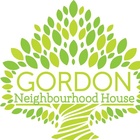
1 thought on “Hello LFS 350!”